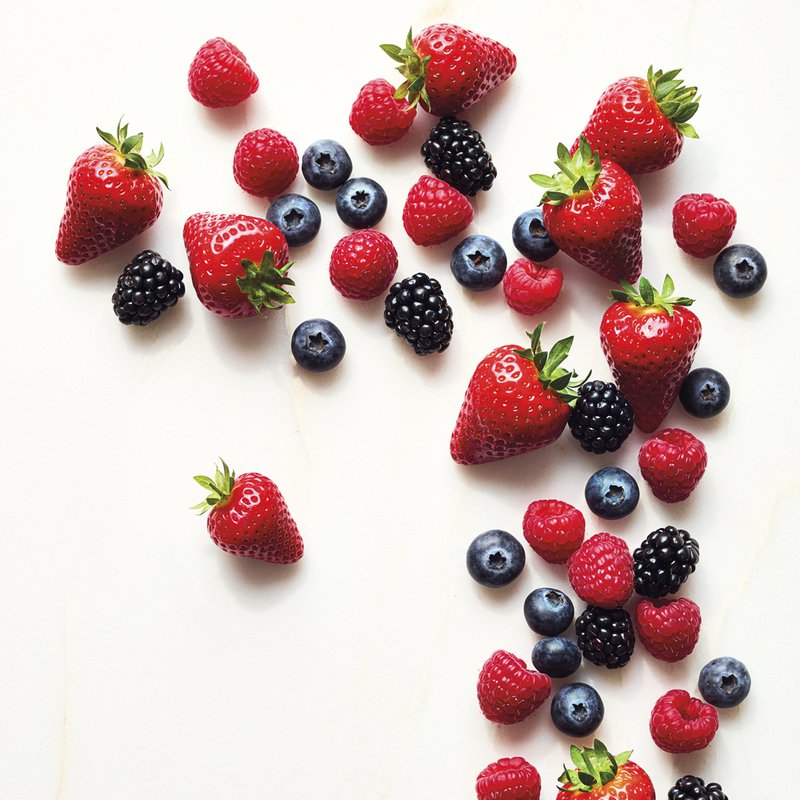One small change: go with your gut

Gut health has become one of the biggest talking points in well-being circles over recent years – and with good reason. The science increasingly suggests embracing a diet that promotes good bacteria is one of the best investments in your body you can make. “Our gut is home to trillions of microbes (our ‘microbiome’) that contribute to many aspects of our overall health, including immune function, digestion and even mental well-being,” explains Catherine Rabess, registered dietitian and author of The 30 Plan: Why Eating 30 Plants a Week Will Revolutionise Your Gut Health. “The more diverse your microbiome, the better your health and overall well-being.”
As much as 70% of your immune system lives in your gut. Moreover, the bacteria that live there are responsible for producing vitamins and hormones. Good gut health has also been linked to better regulation of oestrogen levels during perimenopause as well as improved menopausal symptoms. Here are seven of the best ways to give your gut a boost.
AIM FOR DIFFERENT PLANTS EVERY WEEK
The greater the variety of plants you eat, the happier and more diverse your gut microbiome will be. A 2018 study showed that people who consumed more than 30 different plant foods every week had better gut health than those who ate fewer than 10. It sounds challenging but may be easier than you think. “Wholegrains such as oats, barley, freekeh and brown rice all count, as do pulses such as beans, chickpeas, lentils and peas along with nuts, seeds, herbs and spices,” says Catherine.
SWAP MEAT FOR BEANS
An easy way to hit the magic 30 is to replace some (or all) of the meat in casseroles, curries and the like with pulses. Pulses naturally contain high levels of dietary fibre, including a powerful prebiotic fibre called galactooligosaccharide (GOS). “Prebiotics pass through the alimentary canal without being digested and provide fuel for the beneficial microbes. These, in turn, produce short-chain fatty acids (SCFAs) that play a crucial role in maintaining the health of the intestinal lining, regulating inflammation and providing energy,” explains Catherine. A 125g portion (half a tin, drained) of cooked beans also provides one-quarter of your daily fibre needs.
PRIORITISE POLYPHENOLS
Polyphenols are plant chemicals found in colourful fruit and vegetables, especially berries and plums, as well as nuts, seeds, extra virgin olive oil, red wine, coffee, tea and dark chocolate containing at least 70% cocoa solids. These chemicals are not easily absorbed through our small intestine, so they pass through to the large intestine, where most of our gut microbes live. Here, microbes feed on them and convert them into SCFAs.
FEAST ON FERMENTED FOODS
Fermented foods contain probiotics, the ‘good’ bacteria that can improve gut health, and which are linked to a host of benefits. Sources include live yoghurt, kefir (a fermented milk drink), sauerkraut and kimchi (fermented cabbage), kombucha (fermented tea) and some cheeses, such as aged Cheddar and Parmesan. You’ll need to eat them regularly to reap the rewards. Also, not all fermented foods contain live bacteria, so check the label says ‘contains live cultures’.
EAT NUTS AND SEEDS
Both are an excellent source of fibre and polyphenols. Nuts and seeds also contain healthy fats, such as omega-3 fatty acids. Scientists have found that eating nuts is linked to a more diverse microbiome and better overall gut health. Adding almonds, walnuts, pumpkin seeds, ground flaxseeds or nut butter to your morning cereal is a great way to boost your gut health. If you struggle to fit them in, keep a jar of mixed nuts and milled seeds on your kitchen counter or desk for snacking or to sprinkle over salads, soups or yoghurt.
THINK FRESH
‘Ultra-processed foods’ (UPFs) are factory-made foods that contain ingredients that would not be used in home cooking (such as emulsifiers and preservatives). Usually low in fibre and with higher amounts of sugar, fat and salt, they can reduce the number of ‘good’ gut microbes and increase less beneficial ones. Try and include plenty of minimally or unprocessed foods in your diet, such as fresh fruit and vegetables, eggs and milk. If in doubt, take a look at the back of the packet to see if you recognise the ingredients.
CHOOSE WHOLEGRAINS
Wholegrains are packed with fibre, which is vital for a healthy gut. This food group includes wholegrain bread, oats, barley, rye bread, brown rice, bulgur and buckwheat – so a bowl of porridge, muesli or granola is a good start to the day. Oats are rich in beta-glucans, a type of fibre that increases the growth of ‘good’ gut microbes and helps lower blood cholesterol levels.
MORE WAYS TO SUPPORT GOOD BACTERIA
MANAGE STRESS
It can disrupt your gut health and weaken the immune system. Practising breathing exercises, yoga, tai chi or meditation may help.
EXERCISE REGULARLY
Staying active is a great way to boost your health generally and improve gut microbial diversity. Aim to move as much as you can throughout the day.
PRIORITISE SLEEP
Quality rest is important. Chronic sleep deprivation can lead to increased inflammation, which is detrimental to gut health.
DEFINE YOUR EATING HOURS
Researchers believe that shortening the window of time in which you consume your day’s food could boost gut health and overall well-being. Try eating within a 12-hour window, for example between 8 am and 8 pm.
We all know that fruit is good for us, but you might be surprised at just how big-hitting these small mouthfuls can be”
